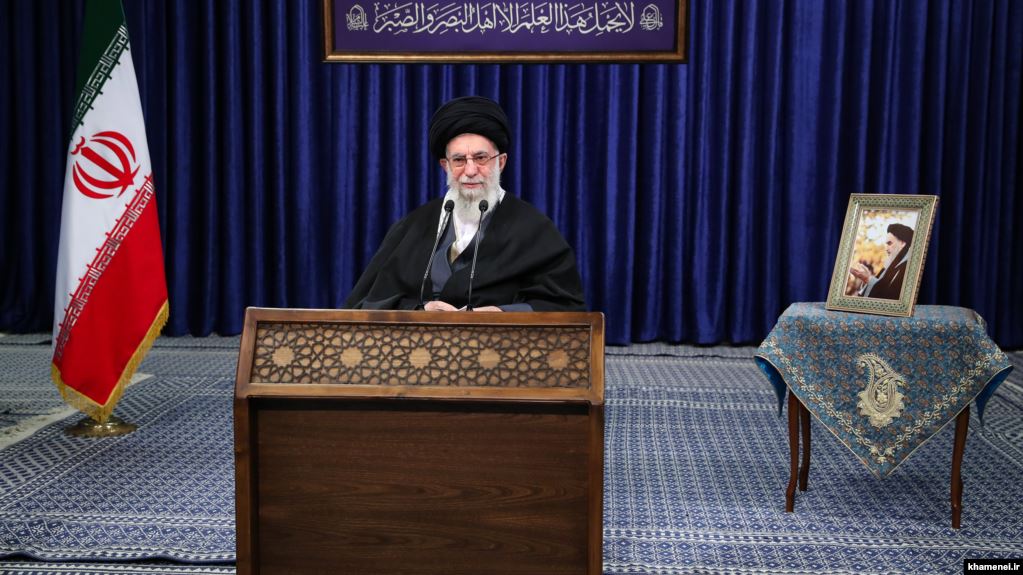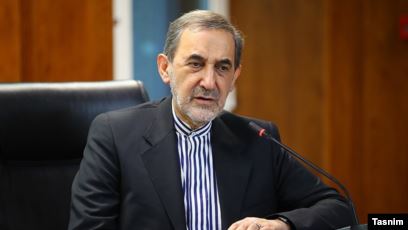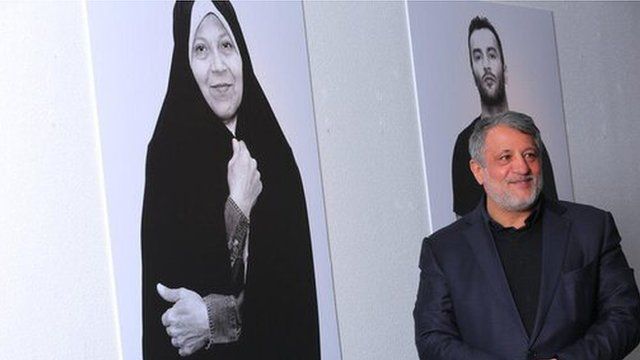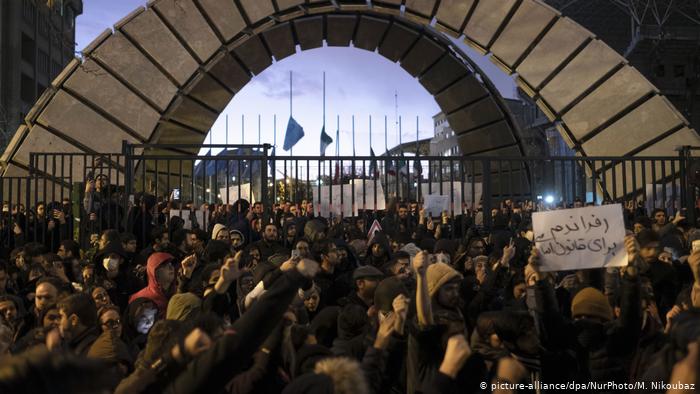
Never-ending Unemployment in Iran’s Economy
The editorial of Jahan Sanat is about how a large part of Iranian society is suffering from widespread unemployment and poverty – particularly now that it is grappling with the coronavirus crisis.
Unemployment is not a new phenomenon in Iran; for years the lack of job opportunities and increasing poverty have cast a shadow on a large part of the country. What is striking in this regard is that out of the 83 million population of Iran, 23 million people have jobs; the rest are either unemployed or dependent on others. In other words, one person has to provide for four others.
This is indicative of the fact that there are no job opportunities for active, young people in Iran. It seems that the main reason for the lack of job opportunities for those looking for employment in Iran is the recessionary economy, the decline in investments and the decrease in manufacturing.
Even though there is great potential for creating jobs in Iran, nevertheless the potential and opportunities are not used properly. Instead of channeling resources into economic activities, these resources are regularly squandered. As a result, unemployment in Iran is putting pressure on the people, while the pressure of US sanctions and enforcing restrictions on production activities have greatly hindered economic actors and those looking for jobs.
Besides, the coronavirus crisis has created additional problems causing many people to lose their jobs. To understand this crisis and its consequences, we must consider that more than 50 percent of jobs are in different service sectors including hotels, restaurants, transportation, banking, and government activities. As a result, coronavirus has had a more severe impact on these services than others.
So, even if the increase in the number of unemployed in Iran is nothing new, nevertheless the coronavirus crisis has added to the severity of unemployment and other widespread problems in the country, putting more pressure on a large part of society.
It is only natural that in a country with declining investment in its manufacturing sector, there is a recession; domestic consumption depends on imports; there is widespread poverty; and the number of unemployed is on the rise. All these are the results of adopting the wrong policies for years.
Brokers and Middlemen Disrupt Housing Market
The editorial of Tejarat, written by a mem ber of Parliament’s Civil and Construction Commission Gholam-Reza Shariati, focuses on the role of the price of construction materials on soaring house prices and how brokers and middlemen play a role in this.
It cannot be denied that the price of construction materials has increased, significantly impacting house prices. Of course, steel and cement are two products used in construction, the increased prices of which directly impact house prices.
So, if these two products that are in the government’s monopoly are managed and controlled, hopefully house prices can be contained to some extent. To contain the prices of these construction materials, it is necessary to ensure coordination. In this regard, a meeting was held in the Parliament’s Civil and Construction Commission in which the minister of industry, mine and trade took part.
After going over the factors involved in increasing the prices of these products, it was decided that the prices of steel and cement should be contained. One undeniable fact is that middlemen and brokers play a substantial role in increasing the prices of construction materials which has been a significant problem in Iran’s market. This has resulted in prices of products going up, and this must be seriously confronted. Seriously addressing these issues can include heavy fines and imprisonment.
The minister of industry, mine and trade is expected to deal with the violators properly. Undoubtedly, the increased price of construction materials is not logical and it must be stopped.
According to the directive of the Ministry of Industry, Mine and Trade, all products of steelmakers must be offered in the capital market. But this hasn’t happened yet, which has partly resulted in prices going up. On the other hand, steelmakers’ products are partly exported which has impacted prices in the domestic market. The minister says that instability in the market is because he doesn’t have the necessary powers to stop exporting these products.
People Under Pressure of Inflation
The editorial of Tejarat focuses on how the disagreement between the government and the Parliament over how to calculate the price of the dollar in the next year’s budget will result in soaring inflation. And it is the people who will have to suffer the consequences.
Iranian people are experiencing tough times with inflation these days. On the one hand, the lawmakers have doubled down on eliminating the government rate for the dollar (at 4,200 tomans each), insisting that this will stop rent seeking, corruption and brokerage in the economy. On the other hand, the government is proud that it was able to raise the prices of goods so smoothly.
The Parliament that was meant to be revolutionary and fix the economy in its early months now seems to make decisions that only create more economic crises. Worse, the lawmakers’ remarks are political, just based on partisanship and political reckoning.
While the government insists on calculating the budget bill with the dollar at 4,200 tomans, the Parliament stresses that the dollar must be calculated at a single rate which is much higher and will undoubtedly result in soaring inflation. To reassure lawmakers, Iranian President Hassan Rouhani tells them not to worry as his government has increased the prices of essential goods so smoothly that people haven’t realized it!
It is as if Rouhani doesn’t know that the majority of Iranian people receive fixed salaries and have to grapple with high prices each day.
The result of decisions made by the Parliament and government can be easily seen in statistics and figures. The age of marriage has gone up and the youth are not willing to start families due to soaring prices. And meanwhile, the rate of divorce has spiked as married couples cannot provide for their families.
The lawmakers must know that the Parliament’s duty is to oversee the executive branch’s performance in enacting the laws. So instead of increasing the price of the dollar and creating an economic crisis for which the people will have to pay the price, the lawmakers should do their basic job which is oversight.
People’s Trust as a Precondition for Victory in the Economic War
The editorial of Eskenas focuses on why the government must gain the people’s trust in the stock market if it wants to overcome the economic challenges caused by US sanctions.
Reviewing recent months’ developments in the capital market shows deep inconsistencies and differences of opinion among governmental bodies, as a result of which small and large amounts of capital have been squandered.
Despite the fact that government officials have stressed on prosperity in the stock market since the beginning of 2020, it seems that the government is interested in this market only as a means for compensating its budget deficit, and people’s trust is not that important!
Meanwhile, Iranian President Hassan Rouhani recently called for security and mutual trust between the government and the public sector as the biggest and most important principle in attracting capital, adding that no investors who legally invest in the country should feel economically, socially, and politically insecure.
Rouhani asserted that the aim of criticizing and undermining the economic sector including the stock market and fluctuations in the forex market is to frustrate investors and economic actors, urging that relying on domestic capabilities depends on ensuring trust and security for economic actors who can alleviate and defuse the impact of sanctions. Following these remarks, the stocks of Mobarakeh Steel Company, the biggest producer of steel in Iran, went down.
Earlier, too, the president had said that people should invest all their capital in the stock market; minutes after these remarks, there was a historic decline in this market, and many people’s savings were squandered.
It is undeniable that under unprecedented sanctions and economic war, the only way for saving the country is to gain people’s trust and attract capital. But given the existing distrust between people and the government, can we hope for prosperity in the stock market? Obviously, if gold, forex, automobiles, and housing become more attractive for investors, then the country’s economy can be rescued.
The government shouldn’t forget that it still needs this market and people’s participation to provide for its budget deficit. Overcoming the current circumstances isn’t possible without the cooperation of the public and economic actors. Otherwise, the country will face many challenges, and fluctuations in the capital markets and the shortage of essential goods are indicative of that.

Khamenei Bans Coronavirus Vaccines from the US and UK; Demands the US to Lift Sanctions on Iran Immediately

Iran Supreme Leader Ali Khamenei has announced that any coronavirus vaccines made by the United States or the United Kingdom are banned from entering Iran. Khamenei also stressed that it is not necessary for the United States to return to the JCPOA, “The important point is that sanctions must be lifted immediately and completely.”
As for the coronavirus vaccines, Khamenei noted: “If Americans could have produced vaccines, they would not be dealing with this coronavirus catastrophe in their own country where 4,000 people are dying of it every day; not to mention that basically they cannot be trusted.” He also pointed to France, saying he is not “optimistic about the French” in this regard either.
In a televised speech in which Khamenei appeared without a mask for the first time after the coronavirus outbreak, he also underscored that making the coronavirus vaccines in Iran is “praiseworthy”, adding those “experienced” individuals who have made such efforts “must not be contradicted.”
This is not the first time that Khamenei has posed conspiracy theories about coronavirus. In March, he noted that “a part of this virus was especially made for Iran.” Meanwhile, the IRGC coordinating deputy, Mohammad Reza Naghdi, claimed that the companies producing the coronavirus vaccines believe that “the world population is high and needs to be reduced by 20 percent.”
In another part of his speech, Khamenei referred to the JCPOA, saying he does not insist that the United States returns to it, but the important point is that sanctions must be lifted immediately and completely: “If the sanctions are lifted, the United States’ return to the JCPOA makes sense; of course, the issue of compensation – which is one of our demands – will be taken into account in the ensuing stages.” Khamenei continued: “If they return to their commitments, we will do so too – as I said from the very beginning.”
Khamenei’s Adviser Points to Possible Negotiation Over JCPOA: Snapback Mechanism Must Be Removed

Contrary to claims made by Iranian officials regarding the impossibility of renegotiating the nuclear deal (JCPOA), Ali Akbar Velayati, senior adviser to Iranian Supreme Leader Ali Khamenei, talks implicitly of possible talks in this regard, saying that in case of holding negotiations again, the snapback mechanism must be removed.
Velayati called the snapback mechanism “illogical,” adding that the Iranian supreme leader was against it in previous negotiations and it was ratified contrary to his view.
The snapback mechanism is enshrined in UN Security Council Resolution 2231, allowing that if Iran violates its obligations, the signatories of the JCPOA can automatically trigger back all international sanctions.
Velayati also pointed to Khamenei’s remarks regarding the lifting of sanctions, urging: “We don’t insist on America’s return [to the JCPOA], but if it wants to, there are certain conditions –the most important of which is lifting sanctions.”
He also called for certain conditions proving that the American administration will be committed to the deal, adding that during last round of negotiations, Khamenei had wanted the “US president to write it down” but “promises were made orally and then they didn’t keep their oral promises.”
The Supreme leader’s adviser then defended the Iranian Parliament’s recent ratification to increase uranium enrichment, saying: “Iran can easily increase enrichment at a higher level anytime it decides to.”
Recently, the Iranian Parliament passed a piece of legislation called “Strategic Measures for Lifting Sanctions” binding the government to annually stockpile 120 kilograms of 20 percent enriched uranium.
The bill urges that if financial, banking, and oil sanctions are not lifted by February 21, IAEA inspectors will be expelled from Iran and Iran will stop the voluntary implementation of the Additional Protocol.
Meanwhile, the Institute for Science and International Security in Washington, which has been monitoring Iran’s nuclear activities, released satellite imagery showing that the construction of new underground plant at the Natanz nuclear facility is progressing swiftly.
IAEA Director General Rafael Grossi recently emphasized the necessity of reviving the nuclear deal with Iran in the coming weeks, adding that with Iran resuming its uranium enrichment at 20 percent, there is clearly not much time left in this regard.
Rafsanjani’s Daughter: I Wish Trump Had Won the US Presidency for Iran’s Sake

The daughter of one of the most influential figures of Iran, the late Ali Akbar Hashemi Rafsanjani, has lauded US President Donald Trump for his policies towards Iran, saying she wishes he had won the US presidency for the second time.
“I wish Trump had been elected for Iran’s sake,” said Faezeh Hashemi in an interview with Ensaf News. She added that Trump’s pressure against Iran could have caused some changes in the policies of its officials: “If Mr. Trump’s pressure continued, we had to make some changes in some policies after all. And these changes could definitely be in the interest of the people.” Hashemi continued: “Democrats are not that tough, namely, by their coming to power, our wrong positions will be reinforced. I hope it will not; but it seems otherwise.” She also said that she would not vote for Trump if she were an American.
Meanwhile, Faezeh’s brother, Mohsen Hashemi, published an open letter, asking her to “apologize” for such remarks. Addressing his sister, he wrote that Trump planned to wage war against Iran: “You should not raise your hopes in the president of a foreign country and yet pretend to be independent!”
Mohsen Hashemi, current head of Tehran City Council, also expressed happiness over Trump’s defeat in the US presidential election while calling his sister a “radical.”
In her interview, Faezeh Hashemi also slammed Qassem Soleimani, saying Ali Akbar Hashemi Rafsanjani was against his presence and resistance policy in Syria: “What was the result of Mr. Soleimani’s performance in the name of resistance? Which problem was resolved in our country? What kind of development has it stimulated?”
Faezeh Hashemi – formerly a member of Iran’s Parliament – has taken controversial positions against the establishment in recent years, including calling on Supreme Leader Ali Khamenei to resign last year.
University Students Criticize the Iranian Government for Its “Lifetime of Crimes, Lies, Deceits, Secrecy”

A year after the IRGC Aerospace Forces shot down a passenger plane near Tehran with two missiles, the Islamic Society of Sharif University of Technology has issued a statement, fiercely criticizing Iran’s establishment for committing “piles of crimes for which it has not been held accountable.”
The Ukraine International Airlines Boeing 737 was shot down by the IRGC shortly after taking off from Tehran’s Imam Khomeini airport on January 2, 2020. All its 176 passengers and crew lost their lives. Iranian officials, however, vehemently denied the factual reports regarding this case at the time while presenting false information.
In their recent statement, Sharif University students said Iranian officials acted “abominably” and “irresponsibly” with regard to this catastrophe: “A lifetime of lies, deceit, secrecy and obscenity has fattened them so much so that they do not even raise their eyebrows over such a terrible catastrophe.”
After the Ukrainian passenger plane was downed by the IRGC last year, Sharif University students held protest assemblies, calling officials to account – a measure which ended up in the arrest of those students.
“Let us say loud and clear: We detest you,” said the students in their statement addressing the authorities, “We detest your dishonesty and lies, your acts of irresponsibility and imprudence.”
The statement then enumerates the crimes committed by Iranian authorities such as killing dissidents and protesters over the decades: “As long as you are an Iranian, they [officials] can easily shed your blood and get away with it.” Referring to threats, intimidation and crackdowns on student activists, the statement says: “The tyrannous regime and its different security institutions have targeted our artery and do not let us breathe.”
In conclusion, these students promise people that they continue challenging and resisting the “despotism” of Iran establishment.
